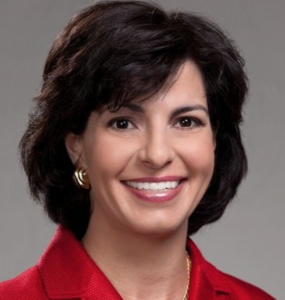The proposal attracted opposition from a variety of public and private officials during a September 13 joint hearing.
________________________________________________
A proposal to shore up the grid reliability through the creation of an ERCOT “gas desk” has received significant push back during a legislative hearing this month.
Brad Jones, interim director of the Electric Reliability Council of Texas, earlier had floated an idea under which ERCOT would monitor the natural gas sector in real time. Although the details remain to be worked out, the apparent purpose of the gas desk would be to identify grid choke points where a gas supply disruption could knock out power generation.
But the proposal attracted opposition from a variety of public and private officials during a September 13 joint hearing of the House State Affairs and Energy Resources Committees. Among those questioning the proposal were Railroad Commission member Christi Craddick, various lawmakers, (including Ms. Craddick’s father, state Rep. Tom Craddick), and gas industry representatives.
Railroad Commissioner Craddick suggested that rather than serving a useful purpose, a gas desk could undermine gas industry market forces. “I’m not clear … how that would … make the electricity grid more reliable. That’s not clear to me,” she said. A variety of industry players, including Texas Oil & Gas Association president Todd Staples and Texas Pipeline Association vice chairman Vincent Dicosimo, echoed those sentiments. “It would not have prohibited what occurred during Uri. It would not enhance Texas’ ability as a standout state for gas production,” said Mr. Dicosimo. Rep. Tom Craddick, of Midland, said ERCOT should not proceed without further direction from the Legislature. “My constituents are very heavily involved (in the natural gas industry) and they are not for it, I can tell you that right now,” he said.
Purely Operational Data
However, interim ERCOT CEO Jones said that the organization would benefit if it had insight into “purely operational data” from the gas industry. Such information could include how much natural gas is available at various locations and any potential transport problems. “Is the line operating? Or is the compressor station out? Is there maintenance being done? Those types of simple things are all we’re talking about,” he said. Mr. Jones also said he preferred that natural gas companies voluntarily provide the information rather than facing mandates.
As a general matter, however, state regulators told lawmakers during the hearing that the implementation of SB 3 was proceeding on course and on time. Both the Railroad Commission and the Public Utility Commission have created rules regarding facilities weatherization, and the PUC likewise has implemented a number of “Phase I” electric market design changes, regulators reported.
PUC Chair Peter Lake said that because of changes ordered by his agency, ERCOT has begun procuring additional reserve power on an ongoing basis. He estimated the cost of these changes to households, per month, at $1.26. Lake said that the Commission also was getting close to approving separate “Phase II” reforms, but that that PUC commissioners would wait to implement any such changes until after the 88th Legislature convenes in January.


